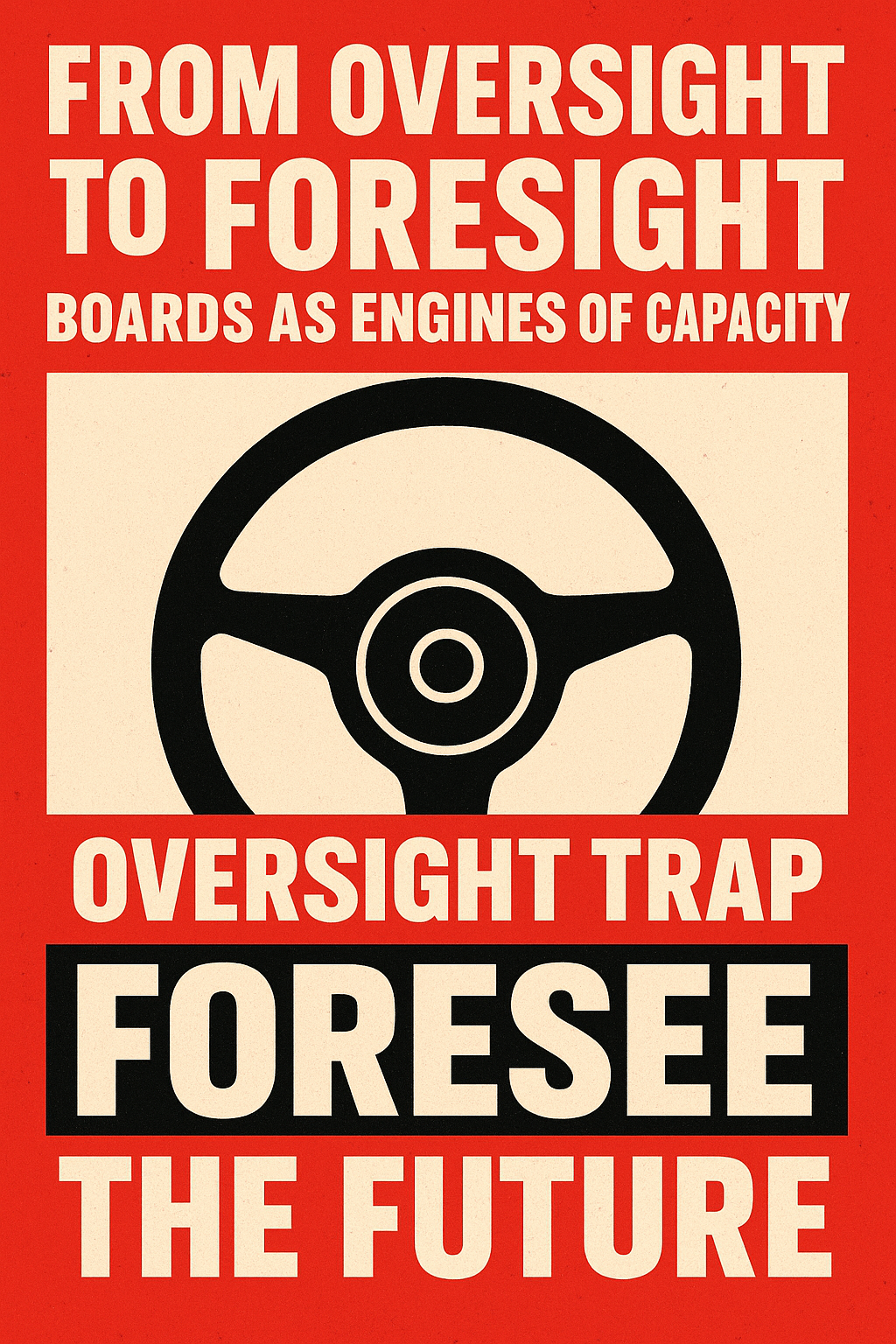
Governance is not static. It is a living practice that either expands or constrains an association’s ability to thrive. For too long, boards have equated their role with oversight—reviewing budgets, monitoring compliance, approving policies. Important, yes, but insufficient.
The boards of tomorrow must move beyond oversight into foresight. Their purpose is not merely to watch over the past but to equip the organization with the capacity to navigate the future.
The Oversight Trap
Oversight is safe. It is tangible, measurable, and bound by documents and deadlines. But it can also lull boards into a false sense of accomplishment.
When directors spend most of their energy reviewing reports, they are often reacting to history rather than shaping tomorrow. Worse, they risk micromanaging staff or obsessing over tactical details. In doing so, they fail to cultivate the one thing the association most needs from them: strategic capacity.
What Foresight Demands
Foresight is more demanding than oversight. It requires:
- Curiosity to ask questions others avoid.
- Scenario planning to explore multiple possible futures.
- Systems thinking to recognize patterns rather than isolated issues.
- Courage to confront uncomfortable realities and resist easy answers.
The Future of Association Boards Report makes clear that governance must shift from a rear-view orientation to a forward-looking discipline. Adaptive Leadership reinforces this: authenticLeadership mobilizes people to tackle tough challenges, not simply manage the predictable.
Capacity as the New Currency
In my framework of Strategic Capacity, boards are measured not by the neatness of their minutes but by the resilience of their organization. Capacity is the currency of the future.
Boards build capacity when they:
- Invest in talent and leadership pipelines.
- Prioritize technology with a human touch.
- Secure resources not just for survival but for innovation.
- Create space on agendas for long-range deliberation.
These are not optional luxuries. They are fiduciary imperatives in a world where disruption is constant.
Call to Action
Ask your board a straightforward question: Are we spending more time looking backward than forward? If the answer is yes, it’s time to reorient governance. Begin by dedicating part of every meeting to foresight—exploring trends, testing scenarios, and building strategic capacity.